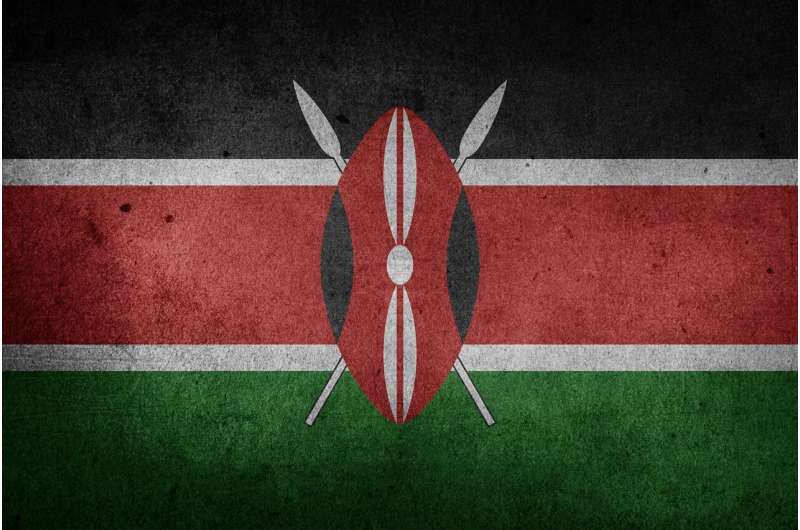Credit: Pixabay/CC0 Public Domain
A study of sexual violence in Kenya during the COVID-19 pandemic finds that children were more likely than adults to be attacked by somebody familiar to them, and incidents were more likely to happen during the daytime in the attacker's home.
The findings highlight the need for plans to address sexual and gender-based violence (SGBV) during times of national emergency to minimize risk and increase protection.
The research, published in BMJ Open, was based on interviews with 541 survivors of sexual violence who had sought help from human rights defenders during the pandemic. Of these, 224 were children, with an average age of 12, and most were female.
Analysis of the interviews revealed that children were 1.6 times more likely to be attacked during the day and 1.7 times more likely to be attacked in private, rather than in a public space. In addition, children were most often victimized by neighbors, followed by strangers and family members. Adults, in contrast, were more likely to be victimized by strangers, followed by acquaintances, members of the local community, or spouses.
Based on the findings, the research team made a series of recommendations for policy-makers to address SGBV risks adequately in future national crisis policies. These include:
- Use constituency development funds to provide alternative safe spaces and shelters when schools are close
- Provide more community meeting facilities where educational films can be shown and social activities take place
- Expand and support community neighborhood watch groups focused on security issues
- Improve data collection and analysis to study regional trends, identify and police SGBV hotspots or serial offenders and monitor availability of support services
- Use data to provide education about SGBV including signs that abuse is taking place
- Establish a national sexual offender register to warn communities about high risk offenders
Co-lead researcher, Sarah Rockowitz, of the University of Birmingham's School of Psychology, said: "Around the world, compounding harms occur in the wake of war, conflict, and election periods, including sexual and gender-based violence. Measures introduced to restrict population movement during the pandemic may have helped curb the spread of the disease, but they also seem to compromise the safety of citizens.
Wangu Kanja from the Wangu Kanja Foundation who co-led the project said: "Kenya has a long history of sexual and gender-based violence, and we urge policy-makers to ensure that measures to minimize risk are built into national crisis policies. Beyond this, we need to change the narrative around SGBV, so it is understood to be a crime and a gross violation of human rights. Governments need to make funding available for programs and interventions to begin this culture change."
More information: Sarah Rockowitz et al, Patterns of sexual violence against adults and children during the COVID-19 pandemic in Kenya: a prospective cross-sectional study, BMJ Open (2021). DOI: 10.1136/bmjopen-2021-048636
Journal information: BMJ Open
Provided by University of Birmingham























